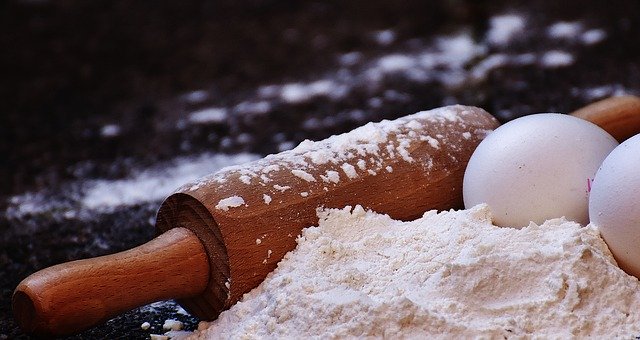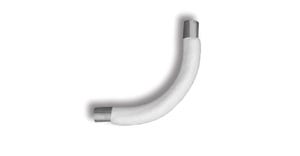November 27, 2019

2019 saw a flurry of flour recalls in the US. 14 notices for recalls of flour have been published by the US Food and Drug Administration (FDA) this year, while only five notices were issued in 2018, according to Powder & Bulk Solids’ analysis of recall announcements on the agency’s website. Of the flour recalls in 2019, 12 stemmed from possible E. coli contamination. Only one flour recall was issued for E. coli the previous year.
Some of the country’s top milling and food companies, including ADM Milling, The J.M. Smucker Co., and General Mills, voluntarily recalled flour over the last year because their products were possibly contaminated with the pathogen.
Several of the recalls were linked to a large outbreak of E. coli-related illnesses. From Dec. 11, 2018 to May 21, 2019, 21 infections from a strain of E. coli 026 were reported in California, New York, Missouri, Ohio, Massachusetts, Rhode Island, Connecticut, New Jersey, and Pennsylvania. At least three people were hospitalized. As the outbreak spread, the reports of illnesses prompted an investigation by the US Food and Drug Administration (FDA) and the Centers for Disease Control and Prevention (CDC). After testing the flour using a variety of methods, officials determined that the strain came from hard red wheat processed into flour at an ADM Milling plant in Buffalo, NY on Dec. 9, 2018 and Dec. 21, 2018.
“Earlier this year, ADM recalled specific lots of flour produced at our Buffalo Mill out of an abundance of caution due to the potential presence of E.coli,” Archer Daniels Midland Spokesperson Jackie Anderson told Powder & Bulk Solids in an emailed statement. “We worked closely with regulators to investigate this issue thoroughly and ultimately determined that the root cause of the contamination was the raw wheat we used to process the flour. The scope of the recall included the flour milled from the same wheat source stored at the Buffalo Mill.”
This issue is not unique to 2019. An outbreak of E. coli O121 in flour made dozens of people ill in 2016, forcing General Mills to recall millions of pounds of product. Other brands that used the contaminated flour in their products, including Marie Callender’s, Krustaez, and Betty Crocker, also had to publish recalls.
To find out why there has been uptick in flour recalls for E. coli over the past several years and how the milling industry tackles this on-going issue, Powder & Bulk Solids interviewed Jason Watt, Buhler Instructor of Milling and Dr. Kaliramesh Siliveru, assistant professor of grain processing, from the Kansas State University Department of Grain Science and Industry.
PBS: Why have there been so many flour recalls for E. coli in the U.S. in recent years?
WATT & DR. SILIVERU: As technology has become better and science has advanced, it has allowed the detection of microbiological contaminants at smaller quantities. Advancements in micro typing allow the specific sources to be traced back to manufacturers of flour. It is my opinion that the problem probably existed previously but had gone undetected with the old technology. As flour is a raw ingredient and is usually cooked prior to consumption, the new scientific approaches have been able to link cases throughout the country.
PBS: How common are E. coli outbreaks in flour?
WATT & DR. SILIVERU: Because wheat is a raw commodity and brought directly from the field to the mill, there is a possibility that E.coli, which is naturally occurring, could be present on the surface of any wheat kernel. That being said, the milling industry uses several different types of approaches to try and clean the surface of the kernel. This includes abrasion to try and remove anything from the surface of the wheat kernel.
PBS: What role does processing and handling equipment play in E. coli outbreaks in flour?
WATT & DR. SILIVERU: This is a very good question that we are not sure we have the answer to yet. There are currently multiple research projects and university/industry collaborations going on here at Kansas State around this topic.
PBS: How (generally) can flour milling operations set up their plants/production lines to avoid such issues?
WATT & DR. SILIVERU: Again, we are looking at this and trying to understand it better. That being said, the plants can help prevent and minimize contamination by inspecting equipment and removing or preventing areas where grain and moisture, whether condensation or intentional, can build up and could allow microbial contamination to grow and spread.
PBS: What about maintenance in plants/production areas?
WATT & DR. SILIVERU: If areas of product build up are found, they need to try and redesign and engineer out those areas, as well as inspect and clean to make sure they don’t continue to build up in those areas.
PBS: How has the flour milling industry’s approach to preventing/handling contamination, including E. coli, changed over the decades?
WATT & DR. SILIVERU: The industry has moved from looking at flour as “just an ingredient” that will go through a kill step after leaving their plants and not having good sanitation just a few decades ago, to treating flour as a final product, viewing their plants as a food production facility and going through the same types of audits as bakeries and other food production facilities. They also understanding that the flour may not be baked and trying to understand the hazards and preventing these items. It has been successful with many of these hazards, but with the recalls, the industry is trying to figure out where the issues are at, how to mitigate them and eliminate these issues.
PBS: What can the flour milling industry do better to prevent E. coli outbreaks in the future? Are more regulations/governmental safeguards needed?
WATT & DR. SILIVERU: It starts with educating the consumer. We all grew up helping Grandma make chocolate chip cookies and “testing” the dough to make sure it is going to “taste good” before cooking. This is actually a very bad habit and practice. There are several ingredients in cookie doughs and cake batters that can carry pathogenic microbes. This coupled with poor food preparation practices such as hand washing and utensil cross contamination, can lead to several foodborne illness issues when consuming unbaked or uncooked product. There are currently a couple companies that produce a “Heat-Treated” flour, meaning that the flour has been heated either before or after packaging to kill any microbial contaminants that might be present to make it “Ready-To-Eat,” but this process is very inefficient and can be unreliable.
PBS: What’s the first step flour milling operations should take when examining their risks of E. coli contamination and other forms of contamination?
WATT & DR. SILIVERU: Inspect their facilities for areas of stagnant grain and moisture to make sure there are not areas where contaminants can sit, grow and effect the entire system.
For more news headlines, articles, and equipment reviews, visit our Equipment Zones
More Powder & Bulk Solids articles:
Huge Explosion at Chemical Plant Injures 3 Workers
You May Also Like


